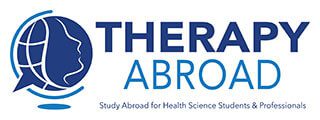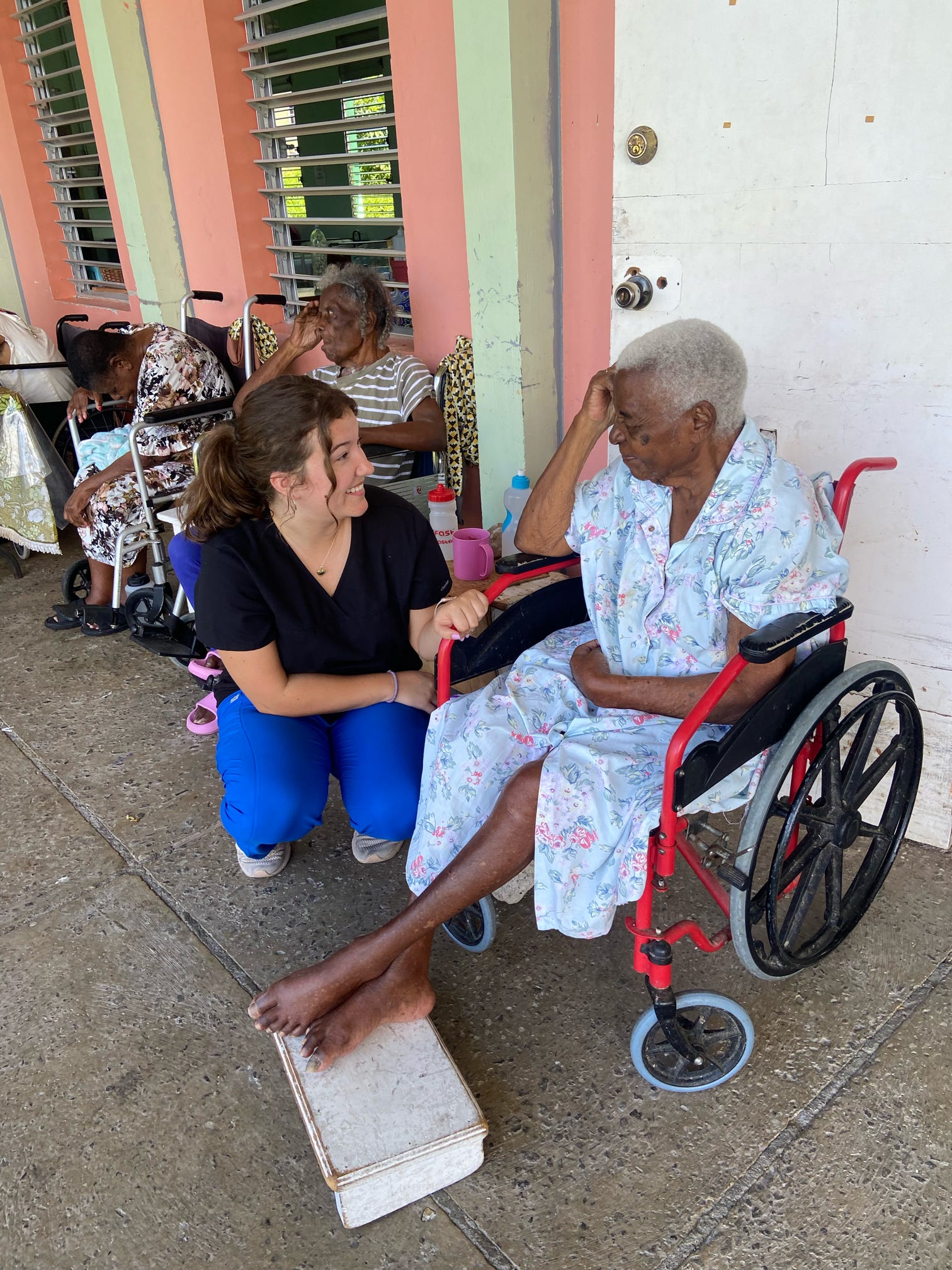Introduction
Study abroad programs have long been championed in higher education as
transformative experiences, offering students opportunities to engage in different
cultures, languages, health-care systems, and global perspectives. For students in allied
health fields such as occupational therapy (OT), physical therapy (PT), and speech-
language pathology (SLP), the potential benefits of study abroad may extend beyond
personal growth to professional readiness, employability, resilience and intercultural
competence. Yet for faculty designing or advising global health placements, and for
students seeking evidence-based justification for participation, questions remain: What
is the empirical evidence that study abroad influences employment or career outcomes?
Does it foster resilience (the ability to adapt, recover and respond) in students who
often encounter cross-cultural, resource-limited, or community-based settings? And
how robust and generalizable is that evidence for allied health students in particular?
In this blog we will undertake a deep dive into the research on study abroad outcomes,
focusing on three major domains: employment/employability outcomes,
resilience/adaptive outcomes, and other relevant outcomes for allied health students
(e.g., language skills, intercultural competence, self-efficacy). As we proceed, we will
critique the methods used in the literature (e.g., self-report, selection bias,
heterogeneity in program duration, cross-sectional designs) and evaluate
generalizability for OT, PT, and SLP students. We conclude with implications for faculty
and students and suggestions for designing study-abroad experiences that maximize
evidence-based outcomes.
Employment and Employability Outcomes
A key argument in favor of study abroad is that students gain a competitive advantage
in the job market through enhanced language skills, global mindset, adaptability,
intercultural communication, and expanded networks. Several systematic reviews and
meta-analyses have addressed this claim.
One of the most comprehensive is Di Pietro (2022), a meta-analysis synthesizing
multiple studies and finding a positive though modest wage premium (approximately
2–5 percent) for study-abroad participants. The study noted significant heterogeneity
among effect sizes and evidence of publication bias. Di Pietro concluded that while a
positive effect exists, it should be interpreted cautiously (Di Pietro, 2022).
Other reviews highlight that short-term and longer-term study abroad experiences can
positively influence perceived employability and career skills, even when objective wage
gains are small or context-dependent (Stefanova et al., 2021; Dolce, 2023). The
“Erasmus effect” literature suggests that mobility may correlate with increased
likelihood of international careers and different job quality metrics, though not
uniformly higher wages (Dolce, 2023).
Interpretation for allied health students
For OT, PT and SLP students, these findings suggest that study abroad may confer
employment benefits but likely modest, and contingent on context: duration of study
abroad, host country labor market, student prior socioeconomic status, and whether
the international experience is integrated meaningfully with professional training. For
example, an SLP student who engages in a 12-week clinical rotation abroad in an
educational system may develop unique adaptability and cross-cultural skills relevant to
global rehabilitation settings; however, the wage premium evidence does not guarantee
large salary gains in domestic practice settings.
Methodological critiques
– Selection bias: Students who choose study abroad may already have higher motivation,
language ability, or socioeconomic advantage, which can confound outcomes. Meta-
analyses often acknowledge this concern.
– Heterogeneity in study-abroad programs: Duration, location, host institution, discipline
and activities vary widely, making pooling challenging. Meta-analytic synthesis is limited
by inconsistent measurement.
– Self-report vs objective outcomes: Many employability outcomes are perceptions
rather than verified employment status or wages, reducing strength of inference.
– Overemphasis on wage/earnings: Allied health students may value job role,
satisfaction, cultural competence or global mobility rather than wage alone.
– Generalizability to allied health: The majority of studies focus on broad higher-
education populations rather than health-professional students.
Summary
The employment evidence supports a modest positive effect of study abroad on early-
career outcomes. For allied health students, aligning the abroad experience with their
profession (e.g., community rehabilitation service, bilingual therapy, global health
placements) may amplify relevance. Faculty should frame expectations realistically: a
unique global experience, enhanced adaptability and perspective, rather than a
guaranteed substantial wage differential.
But What About Resilience, Adaptive Skills and Related Outcomes?
Resilience is critical for allied health professionals working in dynamic clinical
environments. Study abroad, with its cross-cultural challenges, may catalyze growth in
resilience, coping skills and self-efficacy, but the empirical picture is mixed.
Some cross-sectional and longitudinal studies report higher resilience and problem-
solving among students who studied abroad (Genkova & Kruse, 2020), whereas other
studies find no significant differences (Duanaeva et al., 2023). Longer stays and higher
quality contact with host nationals appear to be associated with greater intercultural
intelligence and, in some studies, greater resilience.
Mechanisms and relevance for allied health
In an OT, PT or SLP context, resilience can manifest as comfort working in unfamiliar
clinical settings, adaptability to resource-limited environments, cultural responsiveness,
and persistence in interprofessional teams abroad. Qualitative studies highlight
increased self-confidence, autonomy, and readiness for complex clinical tasks among
students returning from targeted global health placements.
Methodological critiques
– Limited longitudinal data: Many studies assess resilience shortly after the abroad
experience and do not track whether changes are sustained once students return.
– Small sample sizes and locale-specific populations: These often limit generalizability to
U.S. allied health cohorts.
– Measurement variability: Resilience is operationalized differently across studies,
complicating comparison.
– Lack of robust control groups: Few studies include equivalent non-abroad comparison
groups or adjust for confounders like baseline resilience or personality.
Summary
Evidence for resilience gains through study abroad is mixed. For allied health students,
designing study abroad experiences with scaffolded reflection, resilience training, and
integration with clinical learning may increase the likelihood of durable gains. Let
Therapy Abroad help you design a course to target these outcomes.
Other Relevant Outcomes for Allied Health
Study abroad can impact additional domains that are directly relevant to OT, PT and SLP
students: language proficiency, intercultural competence, self-efficacy, and professional
identity formation.
Several studies identify measurable improvements in language proficiency and
communication skills following study abroad, particularly among students immersed in
target-language environments. For speech-language pathology (SLP) students, enhanced
bilingual competence can directly influence clinical assessment and intervention with
multilingual clients. In addition to language gains, systematic reviews consistently report
increases in intercultural competence, cultural humility, and global mindset among
participants in well-structured study-abroad programs. Some institutional analyses have
also found that students who study abroad demonstrate higher academic persistence,
retention rates, and grade point averages; however, the extent to which these
outcomes are causally linked to study-abroad participation remains uncertain due to
potential selection effects.
Critiques
– Reliance on self-report surveys limits objective verification of gains.
– Duration matters: Short-term (1–2 week) programs often yield smaller effects than
semester or year-long stays.
– Few allied health–specific studies exist, limiting direct extrapolation to OT, PT, and SLP
cohorts. Are you interested in helping us create research projects to measure these
outcomes in your students? Contact AAC@therapyabroad.org (Kris Brock, Academic
Director).
Recommendations for Allied Health Programs
Faculty and program leaders in OT, PT and SLP should consider design and assessment
strategies that maximize the educational value and evidence base of study abroad
experiences.
1. Align the experience with professional competencies: Therapy Abroad has many
partners such as local clinics or rehabilitation centers. We can help create clear learning
objectives tied to discipline-specific competencies. Alternatively, Therapy Abroad will
find partners that have similarly aligned objectives so that your trip is mutually
beneficial.
2. Embed pre- and post-reflection and resilience training: Provide orientation on cultural
adaptation, ethical engagement, and self-care; schedule structured debrief and
reflective assignments after return. Don’t have the time? Contact
AAC@therapyabroad.org (Kris Brock, Academic Director), and he will help you create
these trainings.
3. Track outcomes longitudinally: Collect data on employment, language outcomes,
cultural competence, and clinical integration across time. Our Therapy Abroad Staff is
highly trained and has expertise in various research domains if you are interested in
partnering. We also have several PhD level researchers that travel with us, and they are
looking for research partners.
4. Use quasi-experimental designs where possible: Incorporate matched comparison
groups or pre/post measures to strengthen causal inference.
5. Address access and equity: Offer scholarships or travel grants to students from
underrepresented backgrounds to reduce selection bias and broaden participation.
Therapy Abroad can provide you with fundraising opportunities for students to
complete.
6. Prioritize program depth: Longer, immersive placements are likelier to yield durable
outcomes than short service trips; interprofessional collaborations further enhance
clinical relevance.
Conclusion
The literature suggests that study abroad has promising benefits for employment and
professional development, including modest wage or job-quality effects, improved
intercultural competence, and potential gains in resilience for some students. For OT, PT
and SLP students, targeted and well-structured global health placements aligned with
clinical competencies can be a powerful adjunct to domestic training.
However, methodological limitations in the literature urge caution. Selection bias,
measurement heterogeneity, and an overreliance on self-report undermine strong
causal claims. Faculty should therefore design programs with clear professional
alignment, assessment strategies, and longitudinal tracking to build stronger evidence
specific to allied health disciplines.
Study abroad is not a panacea. It is a strategic professional development tool that, when
intentionally designed and rigorously evaluated, can contribute meaningfully to the
preparation of resilient, culturally competent allied health professionals.
References
Di Pietro, G. (2022). Studying abroad and earnings: A meta-analysis. Journal of Economic
Surveys, 36(4), 1096–1129. https://doi.org/10.1111/joes.12472
Dolce, V., Davoine, É., Wodociag, S., & Ghislieri, C. (2023). The road to an international
career: The “Erasmus effect” on resilience, intercultural interactions and cultural
intelligence. International Journal of Intercultural Relations, 92, 101741.
https://doi.org/10.1016/j.ijintrel.2022.101741
Duanaeva, S., Berdibayeva, S., Garber, A., Baizhumanova, B., & Adilova, E. (2023). Cross-
cultural Study of Resilience, Stress, and Coping Behavior as Prerequisites for the Success

 Share
Share
 Tweet
Tweet
 LinkedIn
LinkedIn
 Pin
Pin
 Email
Email
